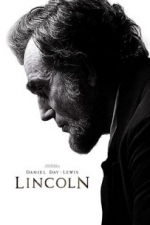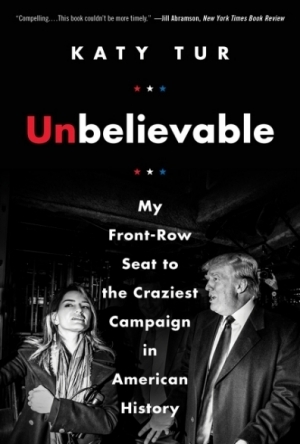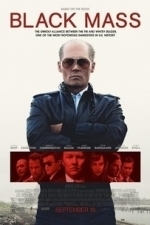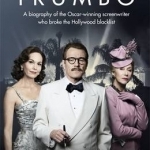LilyLovesIndie (123 KP) rated The Divided Hearts (Sweet Deception Regency #7) in Books
Nov 5, 2018
A love story of a different kind, The Divided Hearts tells the tale of Judith and Nate, and the long realisation they both go through before they accept their love for each other. Set against the backdrop of Newport, America, on the another war with the motherland, some great historical points are raised, as well as dealing with the emotional conflict of those with English ties but who are American at heart.
I thoroughly enjoyed this book, which is quite strange as I usually stay away from romance, and there are many reasons for this! Firstly I'll start with how easy it was to read. The flow was fantastic, really easy to get your head into, Darcy really sets the scene well and gives you just the right amount of information to keep you engaged in the story without overloading you. IT's very rare to find a book that's so easy to read, but you could dip in and out at your own leisure, knowing the idyllic life of early America was waiting for you to return.
Another thing I enjoyed about this book was the fantastic description used by Darcy. It was beautifully detailed, I felt that I could see every vista she described, feel all the dresses Judith wore and get all hot and flustered at Nate's muscles! It's rare that a book truly appeals to all senses whilst you are reading it, but Darcy manages this superbly and it is a great delight to read.
In addition, the characters deserve a mention. In a relatively short text, it's sometimes difficult to really engage and invest emotionally in the characters, but in 'The Divided Hearts' you are drawn whole heartedly into their lives. You agonise with Judith over her decision of whether to stay in America or not. You get excited when good things happen to the characters, you feel scared for them when they're in danger. I know it sounds vague, but believe me, this is a book you want to read for yourself, and I won't spoil that first read excitement!
Perhaps the best thing for me though was the story itself. It was entirely believable from start to finish. You really could have imagined this happening during that difficult transition time, and that makes it all the more enjoyable. It's like you're getting a lovely snippet into the past, and although it's a story, you don't feel it is entirely fictional, rather, you feel like there's some truth and somewhere out there this actually did happen. I think the accuracy of the history in general helps greatly with this, and it's a relief (and a pleasure!) to see a book that's so well researched and that presents such an accurate historical representation of the time and place it is describing.
In conclusion, this is a brilliant read for an easy afternoon sat in the sunshine. The plot, characters and description work fantastically together to provide a much needed release from the drama's of every day like. I highly recommend it to anyone who enjoys historical fiction or a little bit of easy reading romance.
Gareth von Kallenbach (980 KP) rated Lincoln (2012) in Movies
Aug 7, 2019
Daniel Day Lewis, a man revered for his choice of films and roles, as well as his ability to portray characters with so much emotion and conviction, has done it once again. As the title character for this film, Lewis portrays one of the U.S.A’s greatest leaders and pioneers in a way that few other men could. Surrounded by some of the best actors in Hollywood (including Tommy Lee Jones), this star-studded film has a laundry list of very recognizable faces from all corners of Hollywood. The red carpet was clearly rolled out for this film.
The story starts amid the death and destruction of the American Civil War, an event that is both a fixed point of the story and a constant backdrop. Seeing the fighting and killing made me wonder how gritty this movie would get, but as it turns out, they kept the level of gore pretty low.
The film goes on to set the stage for the final footsteps into the southern theater that was the Civil War. In tandem, it follows the highly controversial 13th amendment, which was barely passed at the time due to racism and the belief that one color of human should be slave to another color. The absurdity of this notion is highlighted, but it’s also familiar in the way it parallels issues we face today: legalizing pot, gay marriage, prostitution, the right to bear arms, etc. Perhaps our grandchildren will watch a film in the future about these struggles, and regard it as we do a film about the Civil War. As I sat and watched this movie, I was nearly in tears at the thought of how African-Americans were once regarded as lesser beings. Will our grandchildren cry at the ridiculousness of our beliefs?
The cinematography was amazingly crisp. Many of the characters are introduced in such a way that they have a grand entrance through the mystique created by camera angles. I have to truly applaud Spielberg for what might be his best film yet. The camera work was immensely effective, relying heavily on the contrast between shadow and light. Coupled with richly detailed sets, it made everything staggeringly realistic, and absolutely convincing.
I will say this for Lincoln: I haven’t been so moved and taken aback by a period film in my life. This is a must see for everyone.
The dialog is highly political, and sometimes goes along at quite a clip; be prepared to miss a few things the first time around. However, watching it a second time surely won’t be a sin. The humor alone merits a second viewing. There are many good laughs to be had.
Lincoln is a work of art.
True Yankees: The South Seas and the Discovery of American Identity
Book
With American independence came the freedom to sail anywhere in the world under a new flag. During...

Bringing Up Baby
Book
?Bringing Up Baby, directed by Howard Hawks in 1938, is one of the greatest screwball comedies and a...

Hudson Valley Ruins: Forgotten Landmarks of an American Landscape
Thomas Rinaldi and Robert J. Yasinsac
Book
Countless books have been published on the historical sites of the Hudson River Valley. But these...
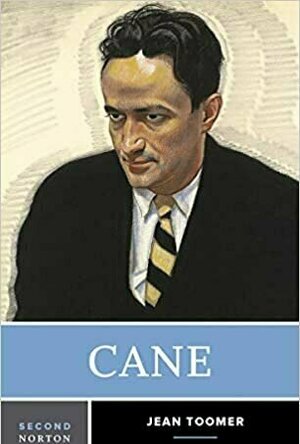
Cane
Book
Originally published in 1923, Jean Toomer's Cane remains an innovative literary work-part drama,...
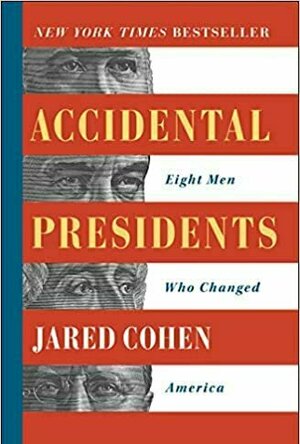
Accidental Presidents
Book
This New York Times bestselling "deep dive into the terms of eight former presidents is chock-full...
Gareth von Kallenbach (980 KP) rated Black Mass (2015) in Movies
Aug 6, 2019
Johnny Depp (Pirates of the Caribbean, Sleepy Hollow, Edward Scissorhands) assumes the role of Bulger and audiences will not be able to take their eyes off of him in this film. Every movement, word, and action that he provides on screen demonstrates his versatility and ability to wear the skin and assume identity of those that he portrays. His portrayal of Whitey Bulger separates him from the “Jack Sparrow” identity that his audiences have become accustomed to. Even more impressive about his acting is the way in which the film’s direction displays more of a human element to this monster. The audience is shown countless acts of brutality undertaken by Bulger or on his orders, but there are moments in which you feel a sense of sorrow for the character. In no way do the moments allow for redemption or offer excuses for his actions, but it allows for the portrayal of a more human element. Humanizing Bulger allows for a much fuller picture of what took place during his life and demonstrates that crime was not the only factor.
The film takes all of us into a very dark place. We see a monster in action. We see countless people fall victim to Bulger and his organization. Depp intimidates not only the other characters being portrayed, but the audience in the way that his eyes always seem so cold and heartless. It is said that when you look into someone’s eyes, you can see their soul. With Whitey Bulger, his soul is absent whenever he is portrayed onscreen. This helps to solidify Depp’s portrayal of Bulger and the way that he lived his life. He was a cold, heartless monster. The only sense of a soul or any humanity comes with the direction of the film to make this monster human.
Nominated for an Oscar, BAFTA and Golden Globe,Trumbo is a recent film based on the original biography Dalton Trumbo written by Bruce Cook in 1977. Its adaptation to film provided the perfect opportunity to republish this extremely well researched book. With a forward written by John McNamara, the screenwriter of the motion picture, the story of Dalton Trumbo’s life is just as intriguing as it was almost forty years ago. But who is Trumbo?
If, like me, you have never heard of Trumbo or even the infamous “Hollywood Ten,” it may take a while for it to become clear as to why it was worth Cook’s time to produce a book about the man. Dalton Trumbo was a well-known screenwriter of films such as Papillon, Lonely Are The Brave and Roman Holiday as well as author of the novel Johnny Got His Gun. However these are not all he is famous for. During his life, Trumbo became a member of the Communist Party, which Hollywood branded as an Un-American Activity and thus blacklisted him, as well as other screenwriters, directors and actors. Ten of these men, Trumbo included, were imprisoned for their political beliefs – yet nothing prevented Trumbo from continuing his fairly successful career.
Interestingly, Cook begins the book with the final stages of Trumbo’s life. At time of writing Trumbo was still alive, although rather poorly. After contracting lung cancer, having a lung removed, and suffering a heart attack, Trumbo was a very sick man; nonetheless he was still enthusiastic about being interviewed and telling his personal story.
From his childhood, to his evening shifts at a bakery, Cook details Trumbo’s early life, emphasizing the hard upbringing he had before he found himself in the world of Hollywood. Although roughly 75% of the book focuses on Trumbo’s career, Cook highlights Trumbo as a family man, with both a wife and three children who he absolutely adores.
Cook constantly refers to the Hollywood Ten as a concept that the reader should already be familiar with. Granted, someone who picks up this book is more likely to do so having a prior interest in the central figure, and thus already know about his background; however those ignorant on the topic eventually gather a better understanding on the topic once reaching the relevant chapters. It also becomes clearer why Trumbo is worth reading/writing about – he may have been blacklisted, but he managed to break through all the barriers and reinstate his name and many others.
Reading this half a century after the event, it seems strange that Trumbo was imprisoned. He had not done anything intrinsically wrong, it was purely prejudice against his political beliefs that got him into the mess he found himself. But when you consider the events of the time: World War Two, the Cold War, the Korean War, and Vietnam; it is understandable why many feared those who claimed to be Communists.
Cook’s narrative does not flow as a story, and much of it is broken up with quotes from various people he interviewed. The timeline jumps about between past and present (1970s), which occasionally gets a bit confusing. A large part of the book is spent analyzing many of Trumbo’s works – both for screen and written formats – which, unless you have a particular interest, can be a little tedious.
It has got to be said that Bruce Cook was an exemplary writer with a great eye for detail. He did not jump to conclusions or only talk about things from his point of view. Instead he interviewed, what seems like, everyone who ever met Trumbo, and based his writing on fact backed up with numerous quotes and citations.
This edition of Trumbo contains a selection of photographs taken on the set of the movie. Disappointingly it does not contain any of Trumbo himself – you would think that some photos could have been tracked down!
Trumbo is not a book that will interest everyone. Most people today – particularly in England – will probably be unaware of who Dalton Trumbo was, and thus would only seek out this publication due to a fascination with film production. I have not seen the film, but after reading this and discovering how books go from novels, to screenplays to moving image, it would be interesting to find out which parts of Trumbo’s life made it onto the big screen.

